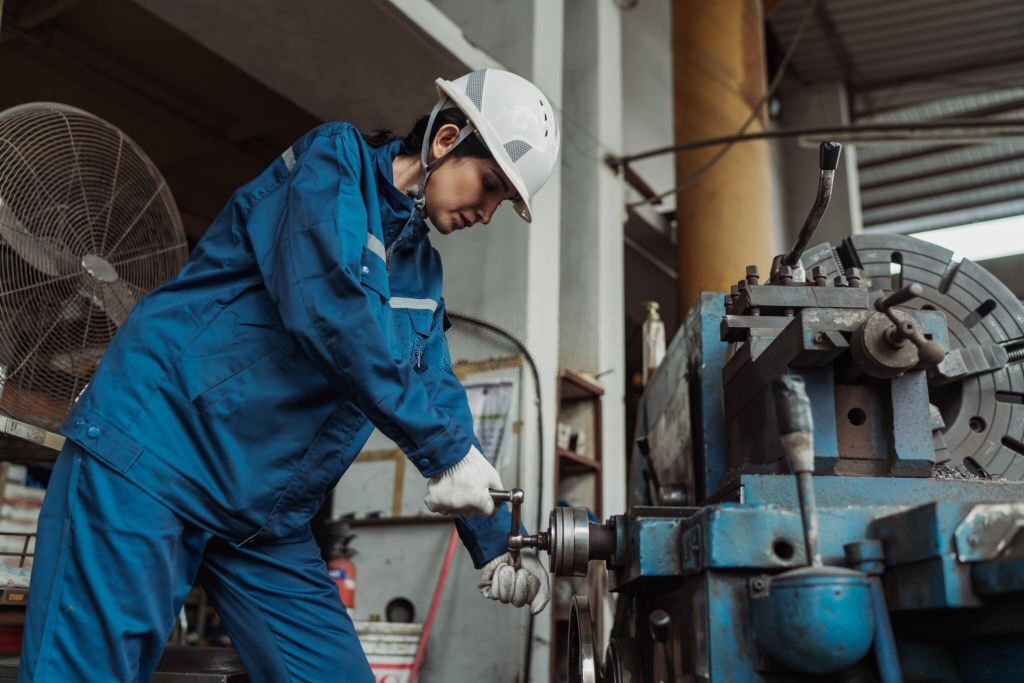
Maintenance is vital for ensuring the longevity, optimal performance, and safety of material handling equipment. Regular maintenance helps identify potential issues, prevent breakdowns, and minimize costly repairs. In this article, we will explore the maintenance requirements for material handling equipment. We will discuss the importance of regular inspections, preventive maintenance, repairs, lubrication, and safety checks. Understanding and implementing these maintenance requirements are crucial for keeping material handling operations running smoothly.
Regular Inspections:
Regular inspections are essential for identifying any signs of wear, damage, or potential problems in material handling equipment. Inspections should cover various aspects, including structural integrity, mechanical components, electrical systems, hydraulics, and safety features. These inspections can be conducted daily, weekly, monthly, or based on the equipment manufacturer’s guidelines. By identifying and addressing issues early on, businesses can prevent further damage, reduce downtime, and ensure the safe operation of the equipment.
Preventive Maintenance:
Preventive maintenance involves scheduled maintenance tasks aimed at preventing equipment breakdowns and optimizing performance. These tasks may include component replacements, system checks, adjustments, and calibration. Preventive maintenance can extend the lifespan of the equipment, minimize the risk of unexpected failures, and improve overall reliability. It is crucial to follow the equipment manufacturer’s recommended maintenance schedule and guidelines to ensure proper care and maintenance of the equipment.
Repairs:
Prompt repairs are essential for addressing any issues or malfunctions identified during inspections or while using the equipment. Repairs may involve replacing faulty components, fixing electrical or mechanical issues, or addressing safety concerns. It is important to have a system in place for reporting and addressing equipment malfunctions or damages promptly. Delayed repairs can lead to further damage, compromised safety, and increased downtime. Timely repairs help maintain the efficiency, performance, and safety of the material handling equipment.
Lubrication:
Proper lubrication is crucial for the smooth operation of material handling equipment. Lubrication reduces friction, prevents excessive wear, and protects moving parts from damage. It is essential to use the correct lubricants recommended by the equipment manufacturer and follow the recommended lubrication schedule. Over-lubrication or under-lubrication can lead to equipment malfunctions and decreased performance. Regular lubrication ensures optimal functioning, reduces energy consumption, and prolongs the life of the equipment.
Safety Checks:
Safety should be a top priority when maintaining material handling equipment. Regular safety checks should be conducted to ensure that safety features, such as emergency stop buttons, warning alarms, and safety guards, are in proper working condition. Any defects or malfunctions in safety features should be immediately addressed to ensure the safety of operators and other personnel working in the vicinity of the equipment. Compliance with safety regulations and standards is critical for creating a safe working environment.
Conclusion:
Maintenance is crucial for ensuring the longevity, optimal performance, and safety of material handling equipment. Regular inspections, preventive maintenance, repairs, lubrication, and safety checks are essential maintenance requirements. By implementing a proactive maintenance approach, businesses can identify and address issues early on, prevent breakdowns, optimize performance, and ensure the safe operation of the equipment. Proper maintenance not only extends the lifespan of material handling equipment but also minimizes downtime, reduces costs, and enhances overall operational efficiency. By prioritizing maintenance requirements, businesses can keep their material handling operations running smoothly and efficiently.

